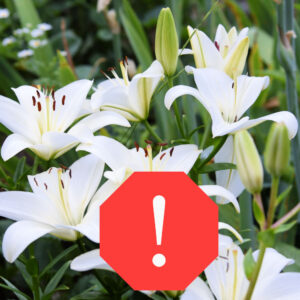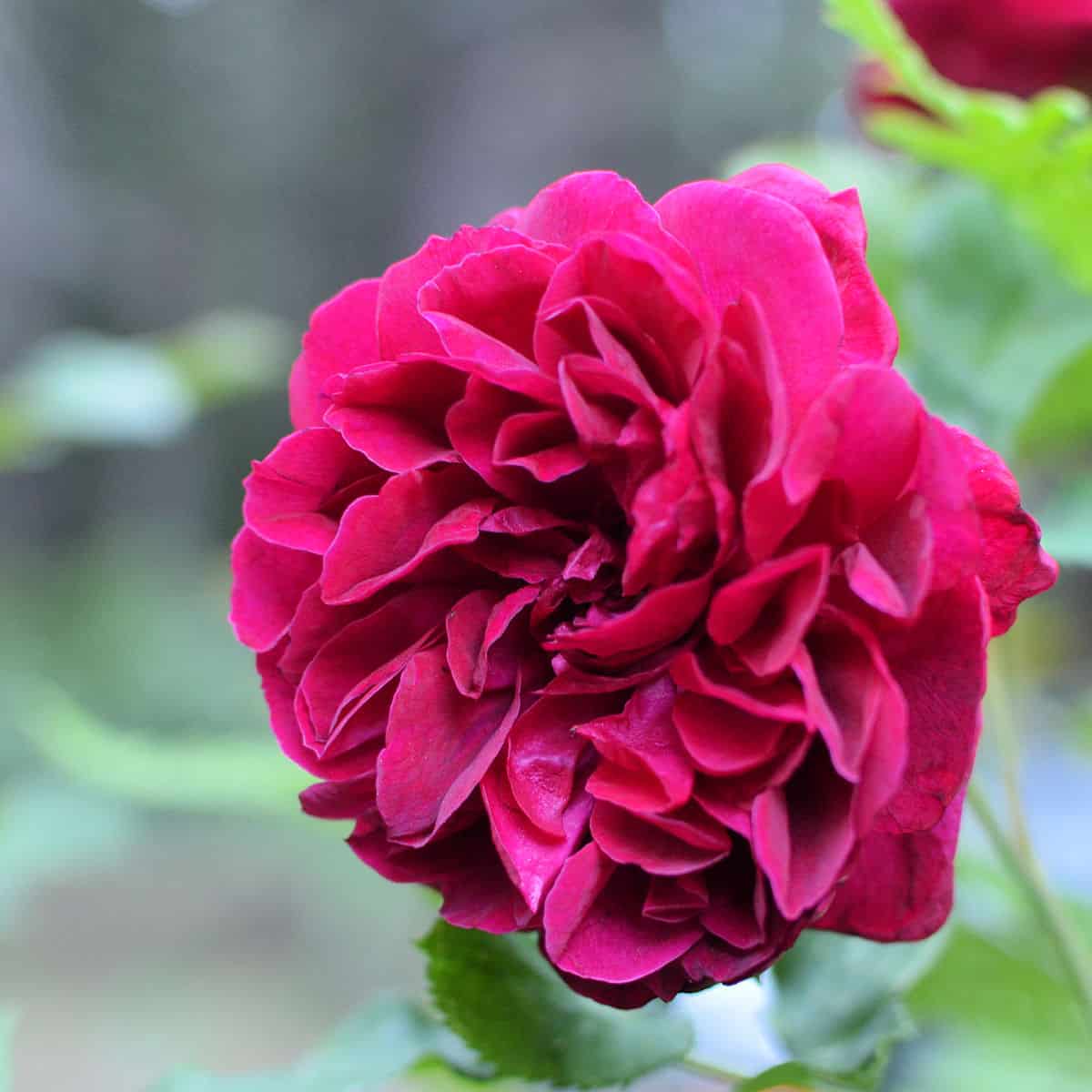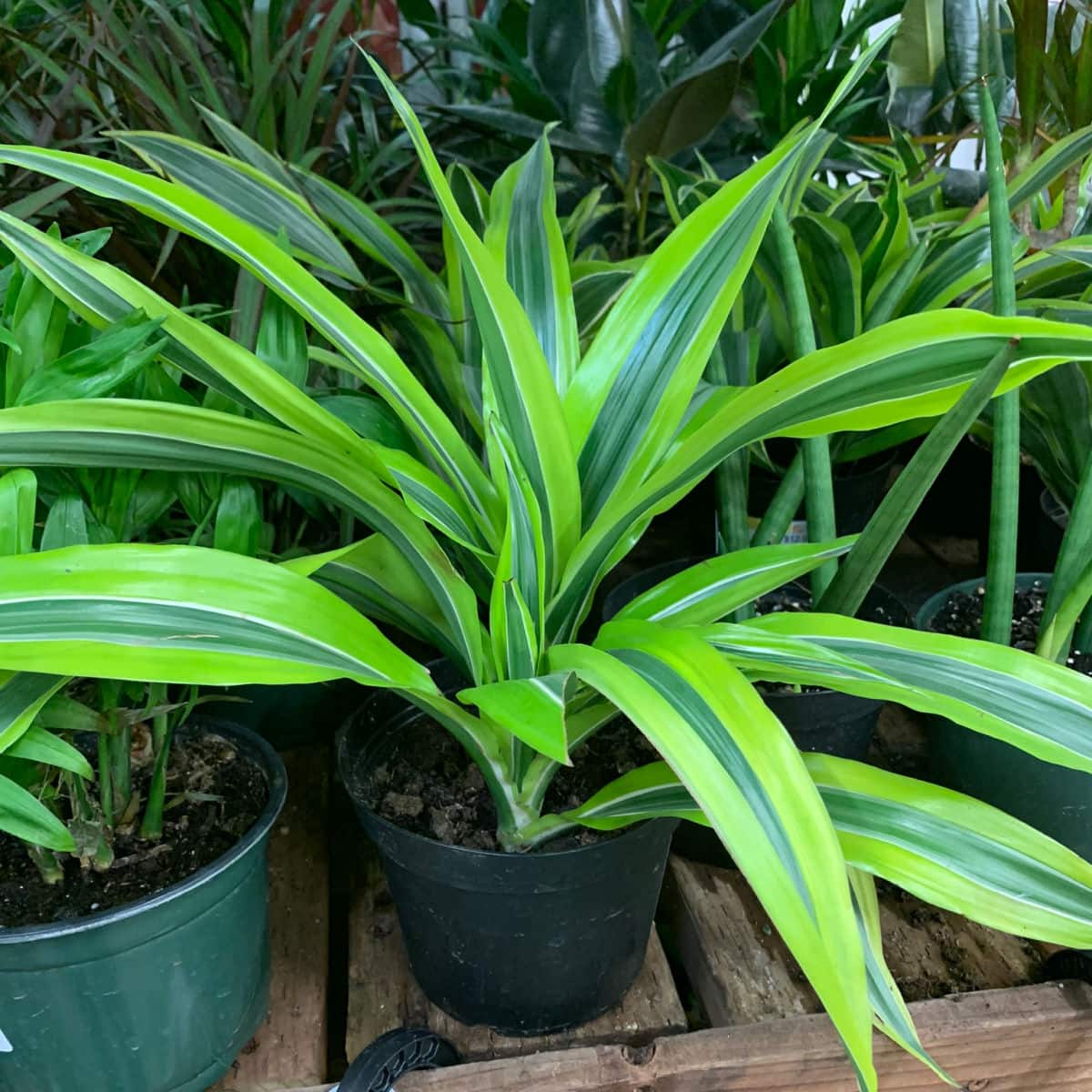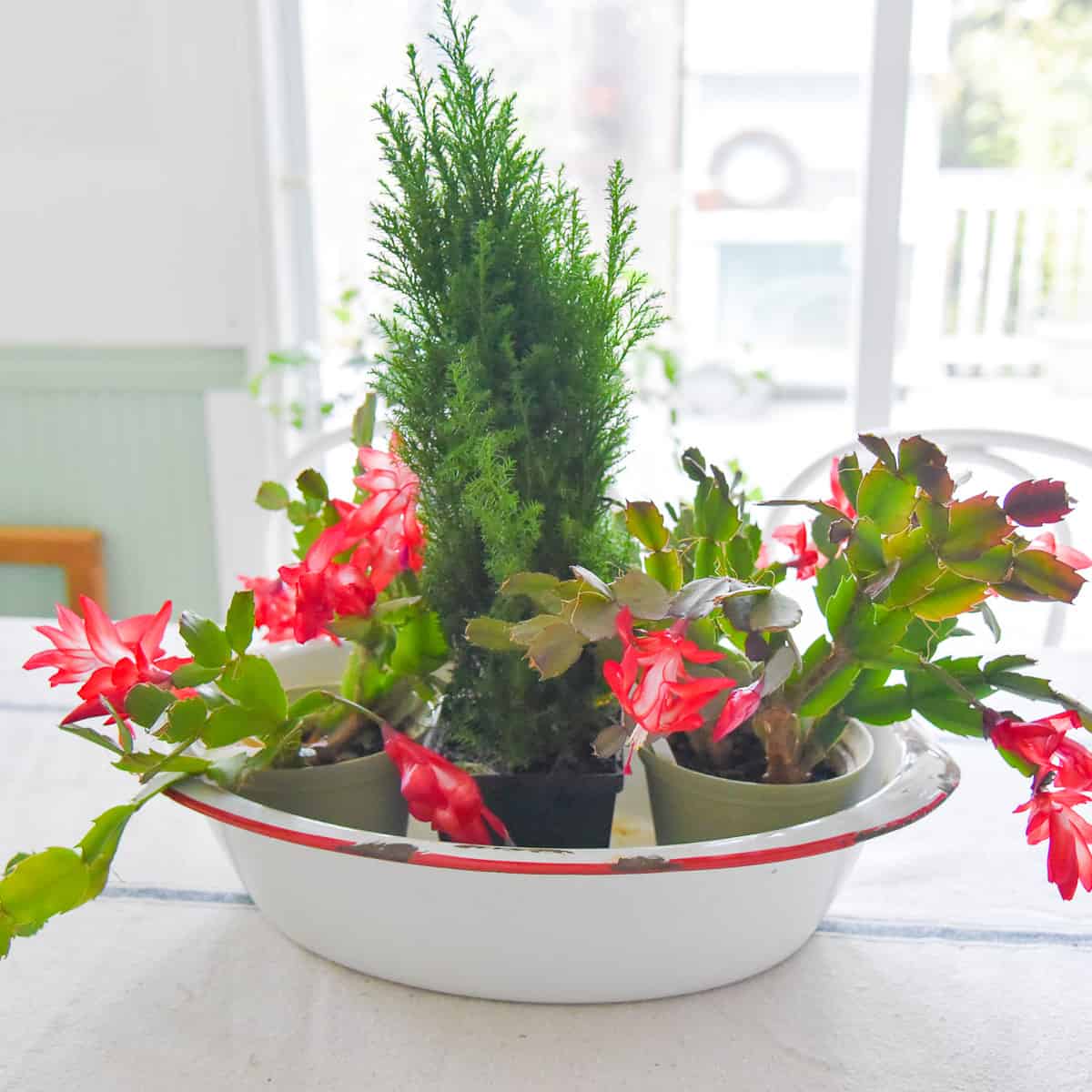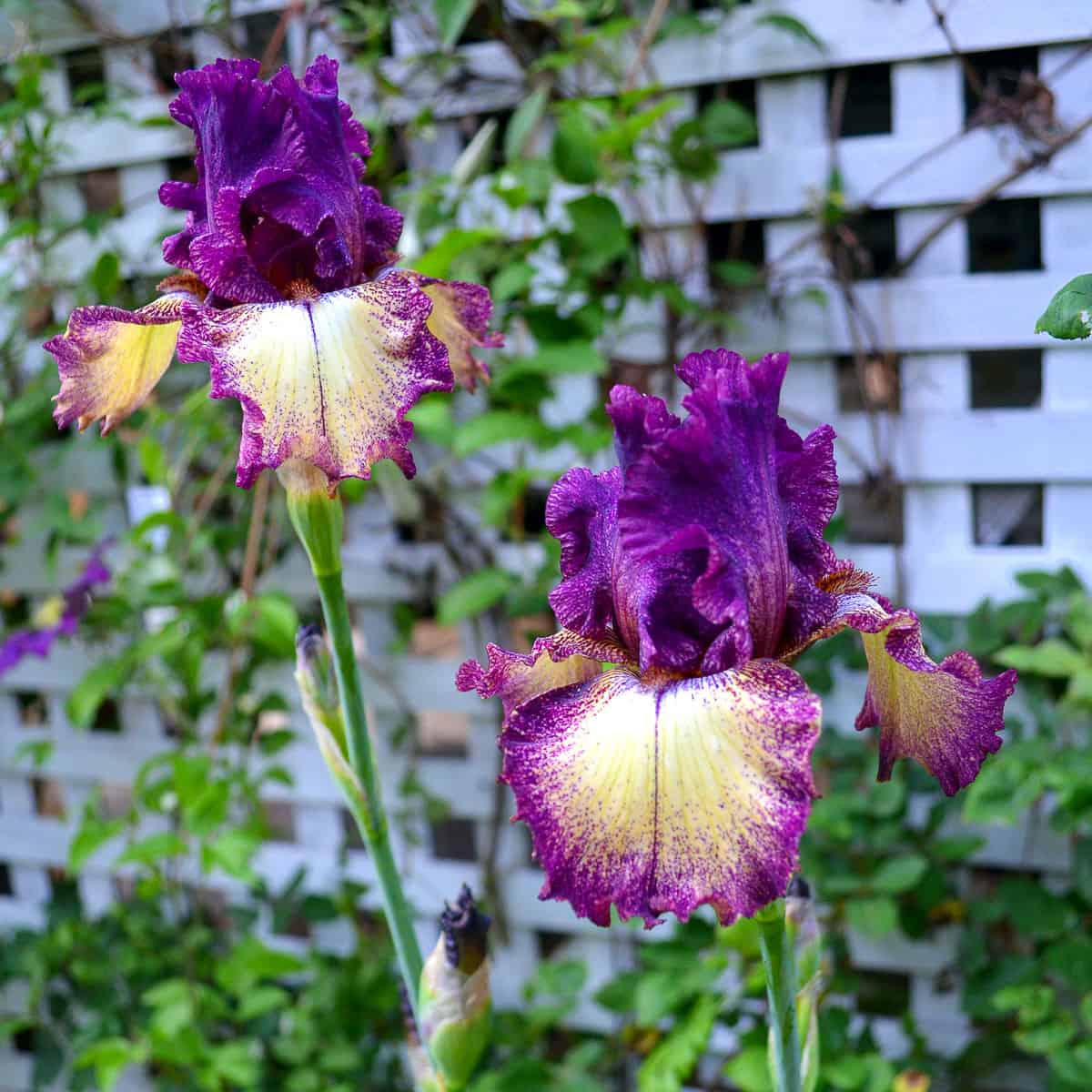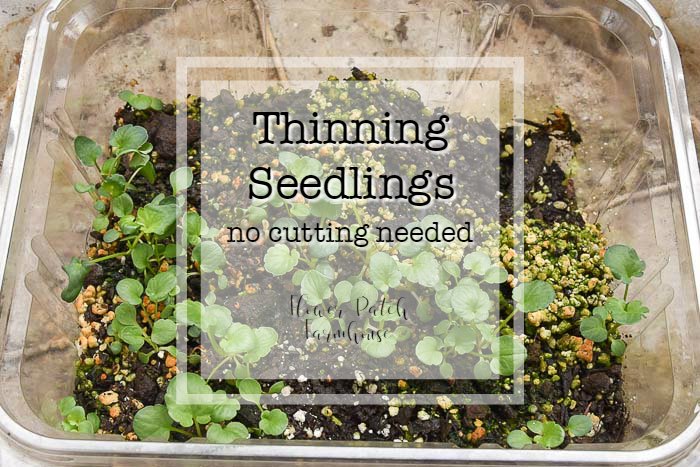10 Great Gardening Habits!
10 Essential Garden Tips for Easier Gardening
Are you looking to make your gardening experience easier and more enjoyable? With the right gardening habits and practices, you can streamline your routine and achieve a thriving garden with less effort.
In this blog post, we’ll share 10 essential gardening habits to help you optimize your garden for success. Let’s dive in!
Plan and Organize Your Garden
Planning and organizing your garden is a crucial step to ensure smooth gardening. Make a gardening plan that includes what you want to plant, where you want to plant it, and when you should plant it.
Having a plan will help you stay on track and make the most of your gardening time. Organize your tools, seeds, and supplies, so everything is easily accessible and in its place.
This will save you time and effort in the long run. Check out my Garden Planner you can download and print.
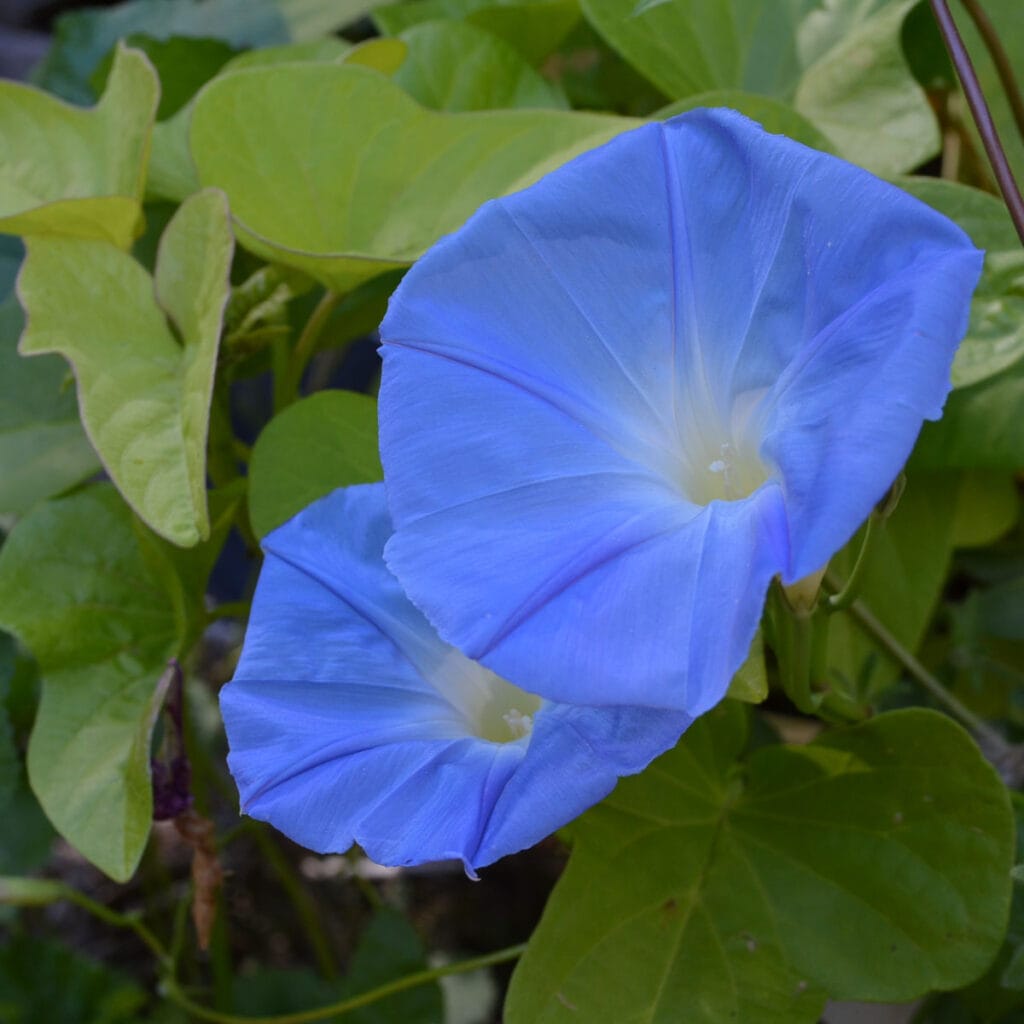
This post contains affiliate links. If you make a purchase after clicking a link I may make a small commission at no added cost to you.
Choose the Right Plants for Your Garden
Selecting the right plants for your garden is essential for their success and minimizing maintenance. Choose plant varieties that are well-suited to your growing conditions, such as soil type, light exposure, and climate.
Each plant has unique care requirements, so it’s essential to understand their needs and provide them with the right amount of water, sunlight, and nutrients.
Research and select plants that are disease-resistant and low-maintenance, which will save you time and effort in pest control and plant care.
Many rely too heavily on the USDA zones. I want you to do better than that and I explain why in another post with video. It really will make your gardening life easier!
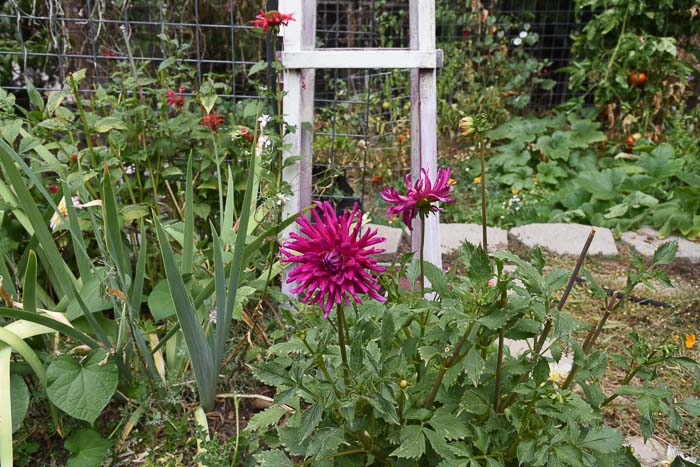
Use Mulch for Soil Health
Mulching is a gardening practice that can make your gardening easier and improve your soil health. Mulch helps retain moisture, suppress weeds, regulate soil temperature, and add organic matter to the soil as it breaks down.
Choose organic mulch, such as straw or wood chips, and apply a layer of 2-3 inches around your plants. This will reduce the need for frequent watering and weeding, and improve the overall health of your plants.
Soil health is huge in making your garden life easier.
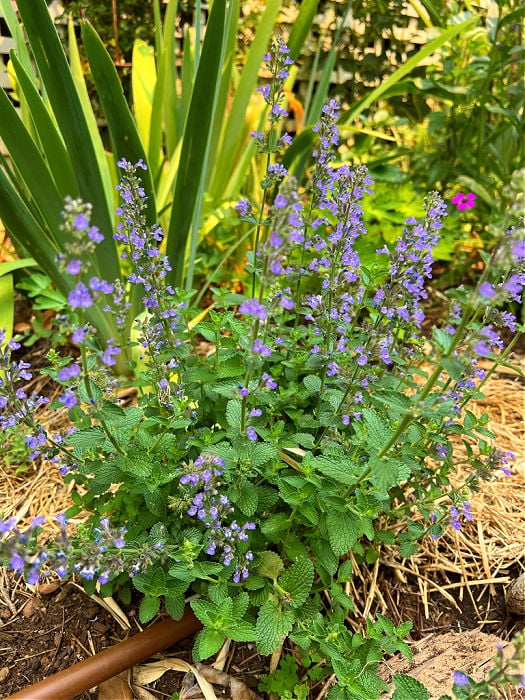
Practice Crop Rotation for Better Gardening
Crop rotation is a sustainable gardening practice that involves planting different crops in different areas of your garden each year.
This helps prevent soil depletion and pest problems, as different plants have different nutrient requirements and can attract or repel specific pests.
Keep a record of where you plant each crop so you can rotate them properly. This will help maintain soil health, reduce the risk of disease and pests, and improve your overall garden productivity.
Find a good Garden Journal Planner to help you keep track, this one is mine but there are many out there. Or create your own!
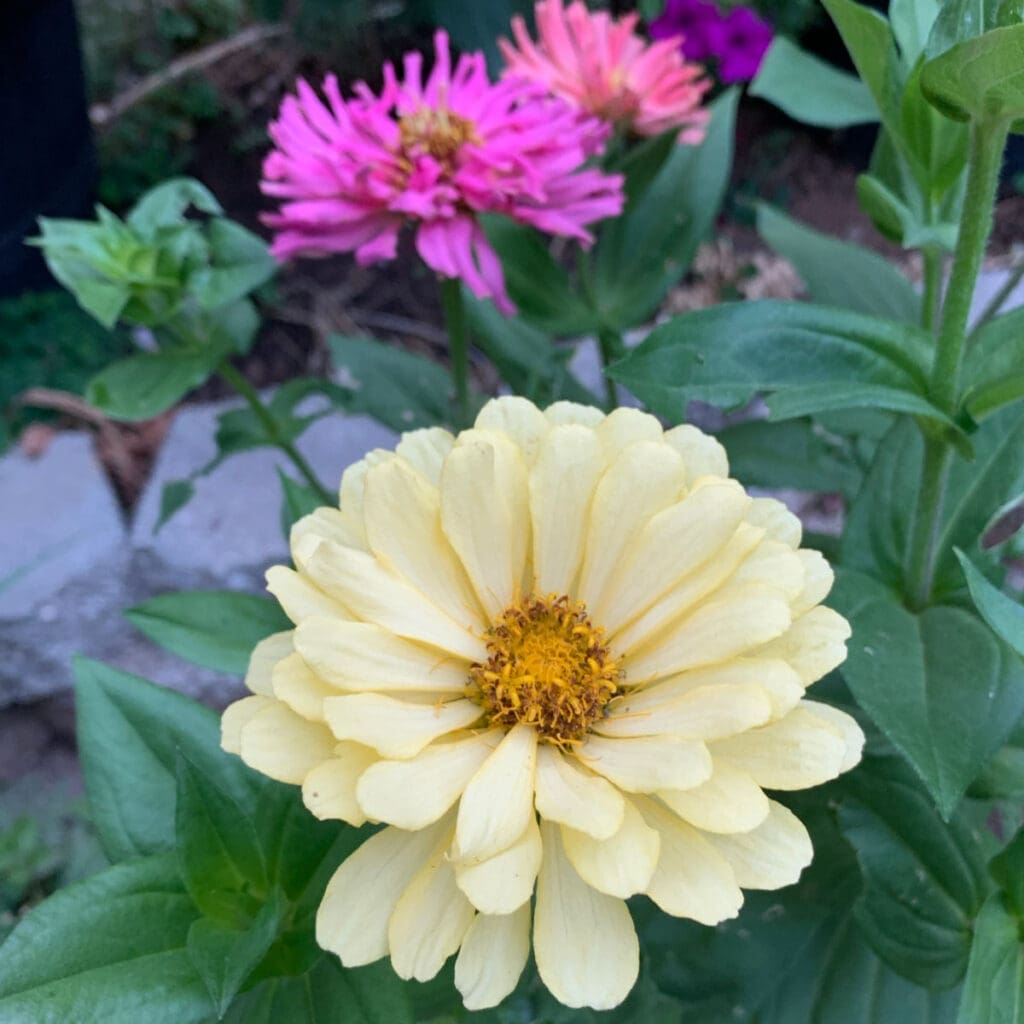
Use Efficient Watering Techniques
Watering your garden efficiently can save you time, money, and water. Use a soaker hose or drip irrigation system to deliver water directly to the plant’s roots, minimizing water loss due to evaporation.
Water your garden early in the morning or late in the evening to reduce water loss and maximize absorption by the plants. Avoid over-watering, as it can lead to root rot and other issues.
Efficient watering practices will help your plants thrive and reduce the need for frequent watering.
When you keep water only on the plants and not spritzing everywhere you have fewer weeds to contend with as well.
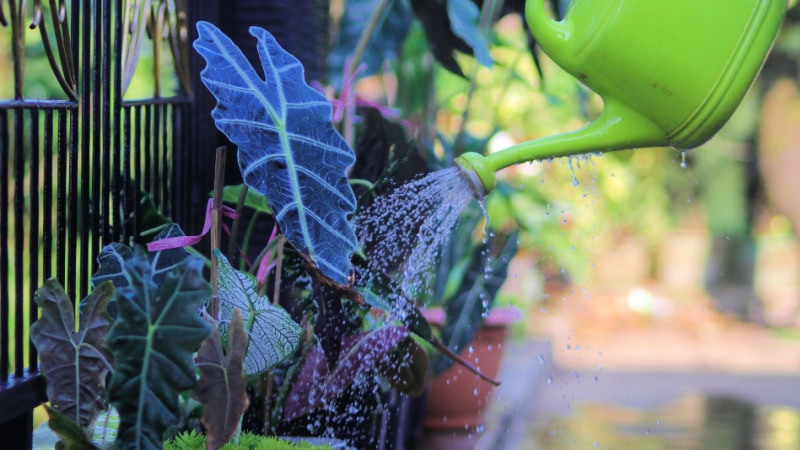
Compost for Nutrient-Rich Soil
Composting is a sustainable and eco-friendly way to recycle kitchen and garden waste and create nutrient-rich soil for your garden.
Start a compost pile or use a compost bin to turn food scraps, leaves, and other organic matter into rich, dark compost that can be added to your garden beds.
All the best tips
Make this DIY Compost Bin
Making compost for a beautiful garden is fairly simple. Even small gardens can have a neat little compost bin tucked in a corner.
Compost improves soil fertility, structure, and water retention, resulting in healthier and more resilient plants.
Incorporate compost into your garden beds annually to provide essential nutrients to your plants and reduce the need for synthetic fertilizers. (compost does such a great job a little goes a long way an inch or two added to a bed or border can be enough)
Consider Raised Beds for Easy Gardening
Raised beds are an excellent option for easy gardening. They provide better drainage, improved soil quality, and easier access to your plants.
Raised beds also help keep weeds at bay and can make your garden look more organized and attractive. Build raised beds using untreated wood, bricks, or other durable materials, and fill them with nutrient-rich soil.
I love these metal raised beds that really do bring the plants up to a manageable level for those with limited mobility!
You can customize the size and shape of the beds to suit your needs and space. Raised beds make gardening more manageable, especially for those with physical limitations or limited space, as they can be built at a height that minimizes bending and kneeling.
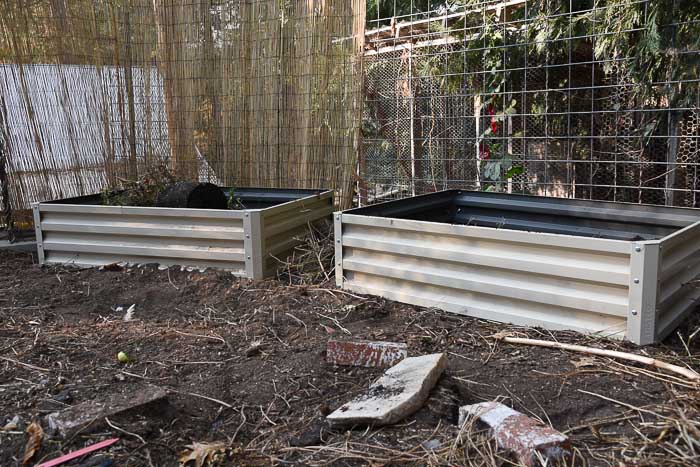
Implement Integrated Pest Management (IPM)
Integrated Pest Management (IPM) is a holistic approach to pest control that focuses on preventing and managing pests using environmentally friendly methods.
Implementing IPM in your garden can save you time and effort in dealing with pests. Monitor your garden regularly for signs of pests, and use natural or organic pest control methods, such as hand-picking, traps, or biological controls.
Encouraging beneficial insects, such as ladybugs and praying mantises, can also help keep pest populations in check. By using IPM, you can protect beneficial insects, and maintain a healthy and balanced ecosystem in your garden.
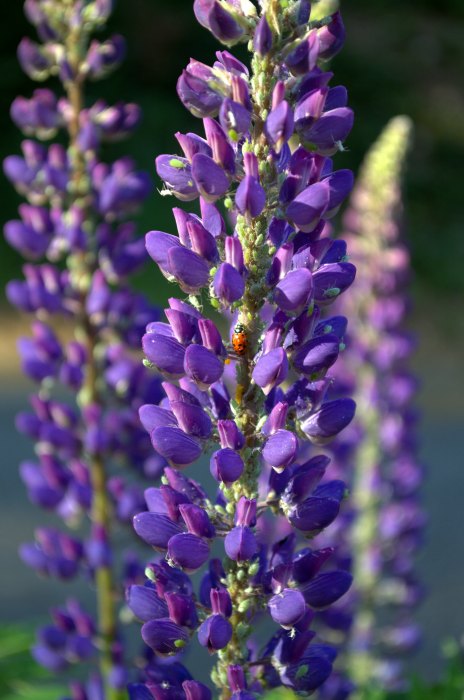
Practice Good Garden Hygiene
Maintaining good garden hygiene is essential for preventing the spread of diseases and pests.
Clean your tools after each use to prevent the spread of diseases, and remove any diseased or dead plant material from your garden to prevent the spread of pests.
Rotate your crops regularly to avoid soil-borne diseases and pest buildup. Also, avoid overcrowding plants, as it can lead to increased humidity and pest infestations.
By practicing good garden hygiene, you can prevent the spread of diseases and pests, keeping your garden healthy and thriving.
Mulch and Weed Regularly
Mulching and weeding are important tasks in gardening that can save you time and effort in the long run. Mulch helps suppress weeds, conserves moisture, and improves soil health.
Weed your garden regularly to prevent weeds from competing with your plants for nutrients and water. Mulch around your plants to prevent weed growth and reduce the need for frequent weeding.
A weed-free garden (not possible) is not only aesthetically pleasing but also promotes healthy plant growth and reduces the need for time-consuming and labor-intensive weeding tasks.
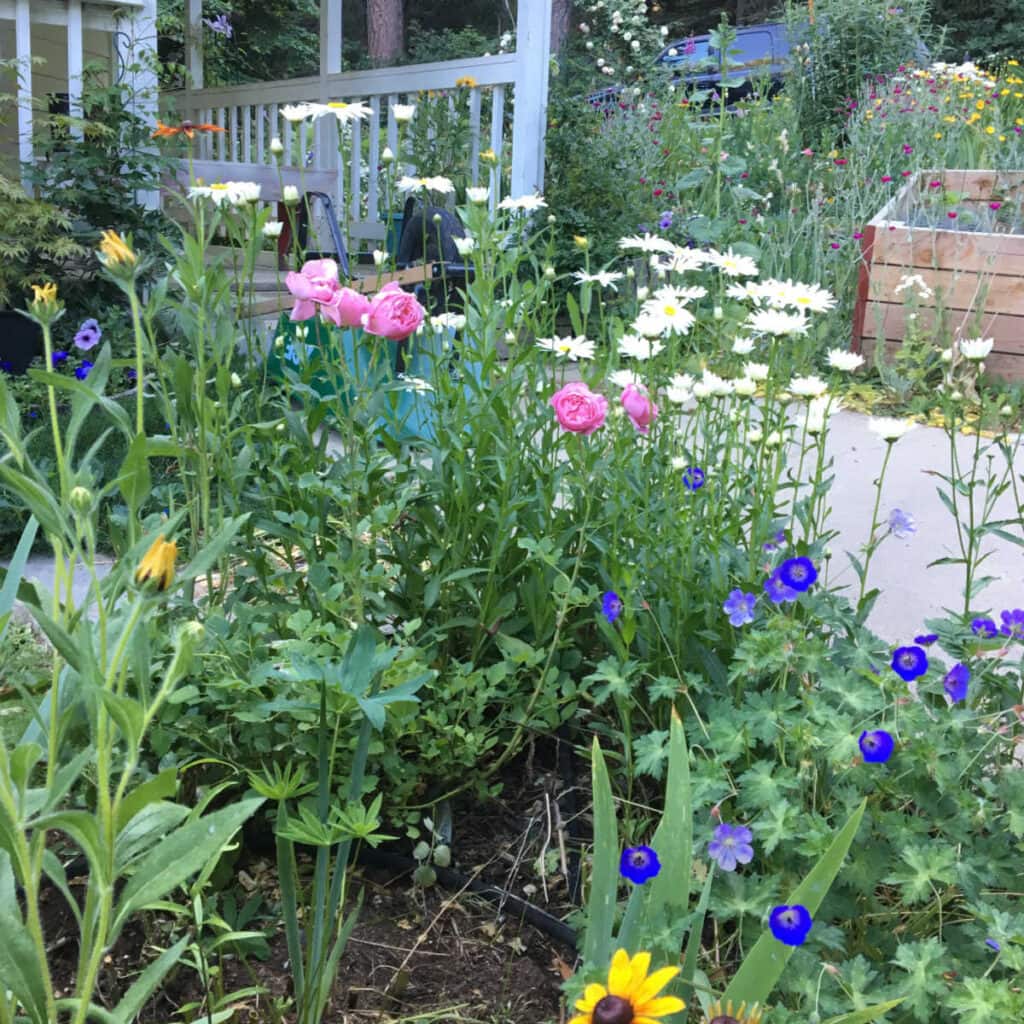
By implementing these 10 essential garden tips, you can make your gardening experience easier and more enjoyable. But here is a bonus one…
Take Care of Yourself
Gardening can be physically demanding, so it’s essential to take care of yourself. Stay hydrated, wear protective gear, and take breaks when necessary.
Planning and organizing your garden, choosing the right plants, using mulch and compost for soil health, practicing efficient watering techniques, using raised beds, implementing IPM, practicing good garden hygiene, and mulching and weeding regularly are all effective practices that can save you time, effort, and resources in your gardening endeavors.
Incorporate these tips into your gardening routine, and you’ll be rewarded with a garden that is easier to care for and that means you will enjoy just being in it even more.
See my video for 2 habits I want you to STOP!
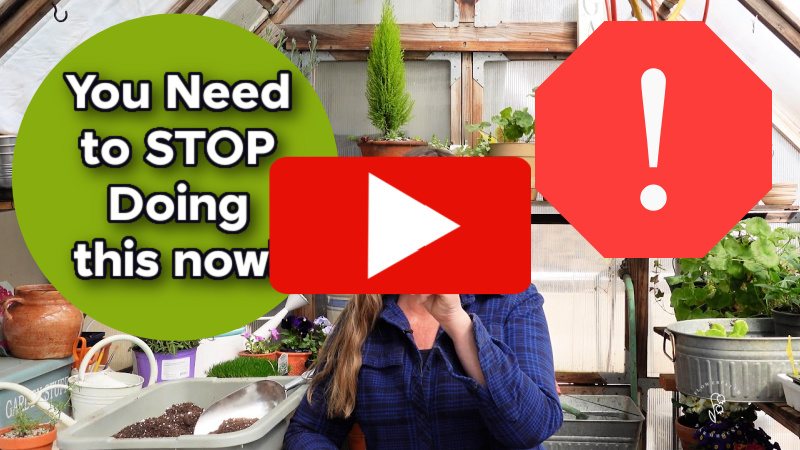
Grab the free checklist for subscribers!
Happy gardening!
